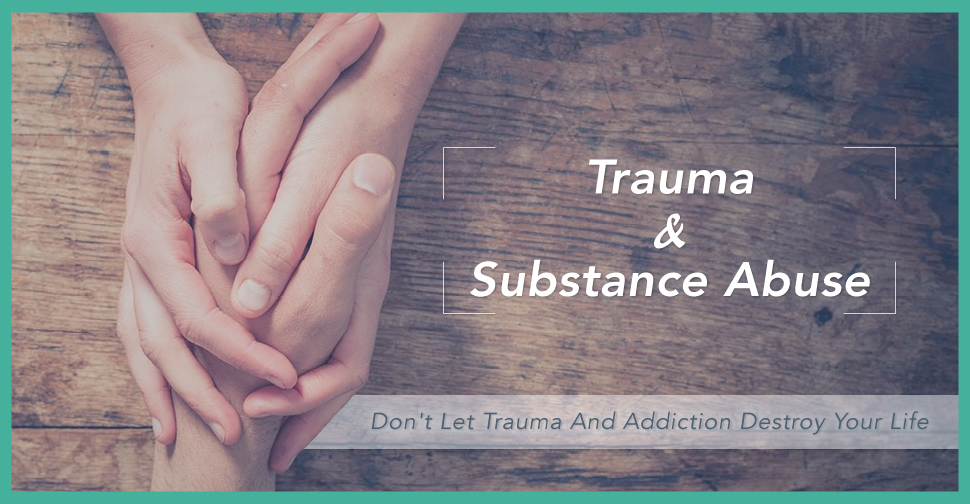
There are few things in life more traumatic than falling victim to addiction, and it takes a real effort for people to dig their way out. This is especially true if addiction is coupled with past traumatic incidents. Trauma has a nasty way of working hand-in-hand with drug addiction to create a trap that squeezes in on people and keeps them stuck in a groove of abuse.
Thankfully, it’s possible to break out of the trap and regain your sobriety. It takes understanding the impact trauma has had on your body and mind, how it influenced your addiction, and what you can do to recover. You can do this and we can help. So let’s get started.
How Trauma Impacts The Body And Mind
Trauma seriously impacts the body and mind in devastating ways. In chapter three of the book Trauma-Informed Care in Behavioral Health Services, the Substance Abuse And Mental Health Services Administration discusses the various ways that trauma impacts a person. These will vary enormously between various individuals, and SAMHSA states:
“Some individuals may clearly display criteria associated with posttraumatic stress disorder (PTSD), but many more individuals will exhibit resilient responses or brief subclinical symptoms or consequences that fall outside of diagnostic criteria. The impact of trauma can be subtle, insidious, or outright destructive. How an event affects an individual depends on many factors, including characteristics of the individual, the type and characteristics of the event(s), developmental processes, the meaning of the trauma, and sociocultural factors.”
This means that trauma is an unpredictable problem that doesn’t cause predictable behavior patterns. For example, some people may recover well from the death of a parent, but their sibling may be completely devastated and unable to cope.
Mental effects of trauma include: loss of hope; limited expectation of life; increase in personal fear; confusion; anxiety; agitation; isolation; fatigue; nightmares, depression; avoidance behaviors, and more. Many of these symptoms will also contribute to physical problems, such as the way that depression can cause a person to sleep more, gain weight, and suffer from physical pain.
Physical reactions include: cardiovascular concerns; gastrointestinal issues; rashes and other skin problems; troubles breathing; physical pain; hypervigilance (the state of being constantly ready for another traumatic event); constricted muscles; loss of bone mass, and more. These physical problems make it very difficult for many people to recover from trauma and often force people to self-medicate.
Trauma Does Influence Addiction
The effects of trauma on addiction have been studied and confirmed multiple times, but it’s worth looking into one study to get a feel for just how much it hurts. In the study “Substance Use, Childhood Traumatic Experience, And Post-Traumatic Stress Disorder In An Urban Civilian Population,” the addiction rates of various groups of people were studied.
The connections between the groups were the fact that they suffered from post-traumatic stress disorder and the fact that they lived in an urban or city-based setting. We’ll ignore the latter similarity, as it isn’t relevant for our purposes.
Found in the study was that substance abuse (in this case, cocaine) was very high in people who suffered from post-traumatic stress disorder symptoms. The type of trauma didn’t matter much: whether it was physical, sexual, or emotional, addiction was high. The people studied experienced trauma at a variety of ages, but the highest increase was in those who experienced trauma at a very young age.
The connection here is obvious. People who suffer from trauma often turn to drugs to self-medicate the symptoms caused by it. It’s hard to blame anybody who falls victim to this problem, as trauma is such a difficult issue to escape. Addiction, however, must be escaped as quickly as possible.
Traumatic Events That May Contribute To Addiction
Now that you know how trauma can contribute to addiction, you need to understand the type of incidents that may trigger it. We almost all experience traumatic events in our lives; the ways in which we react to them define how we recover. Unfortunately for many people, they try to recover with drugs and alcohol. This is always a mistake, but it is one that can be corrected. Examples of trauma that contribute to addiction include:
- Death of a loved one – The feeling of loss generated by losing a loved one often creates extreme levels of physical and mental suffering. This trauma can feel inescapable, as you can’t bring back the loved one you’ve lost. As a result, many people turn to drugs or alcohol to alleviate their suffering.
- Losing a job – When you’re fired or laid off from a job you’ve relied on for years, it’s easy to feel like a failure. Even if the job loss was beyond your control, staring at the mounting bills and financial instability rising in its wake can be traumatic. Drugs and alcohol seemingly kill this pain by blurring you to its reality.
- Being left or cheated on by a significant other – People place so much of their self-worth in their lover, and when their lover hurts them, they are often traumatized. Being left or cheated on makes a person feel betrayed, ashamed, and worthless. These feelings go away with time, but many people can’t wait and turn to drugs or alcohol to feel better.
- Birth of a child – Having children is a joyous situation for many people, but it can often cause a surprising amount of trauma. For an unprepared mother, it’s easy to feel trapped and overwhelmed. For some fathers, it is difficult to imagine having to care for a new human being. Unfortunately, these feelings hide the love and happiness new parents should feel and can often traumatize them enough to cause them to turn to drugs and alcohol.
These are just a few examples of trauma that can force a person to turn to addiction. Other examples include serving in a war, a near-death experience, putting a beloved pet to sleep, losing a home in a fire, or declaring bankruptcy. If you have experienced any of these situations recently and find yourself turning to drugs or alcohol, please get help as soon as possible.
Treating Trauma And Addiction
The grip of trauma and addiction are most easily broken by receiving dual diagnosis care. This treatment method approaches both problems simultaneously to help free you from the mental burden of your trauma and addiction. It requires multiple treatment types in order to foster a holistic recovery that gives you the best chance of achieving lifelong sobriety.
Your trauma will be treated through various psychological techniques, including psychotherapy, family counseling, hypnotherapy, and other proven methods. Essentially, you are seeking the source of your trauma and pinpointing how it influences your life. Working through the negative emotions of trauma helps decrease its impact and gives you a fresh new start on life.
While this is going on, you will also be receiving addiction treatment, such as withdrawal therapy, behavioral adjustments, nutritional treatments, educational materials, and aftercare procedures. All of these methods are designed to move you through the physical demands of addiction, help you learn new ways of coping with cravings, learn more about how addiction hurts you, and how to transition back into the world outside of the rehab walls.
By following this treatment technique, you are giving yourself the chance to gain a new perspective on life, one that moves past your trauma and helps you see the joy and love in the world. You will experience your relationships on a more positive level and appreciate moments in your life on a higher level.
When New Trauma Generates A Relapse
The toughest part of your recovery is the impact that new trauma can have on your relapse risk. Though you can recover from trauma and treat its symptoms in a constructive manner, the negative emotional reaction it causes often sticks with people for a long time. New trauma (such as the death of a loved one or the loss of a job) may trigger these negative memories and cause a relapse.
Don’t feel like a failure if you relapse after addiction treatment, especially if trauma is involved. Relapse occurs in many addiction treatment cases and can be a useful reminder as to why you wanted to quit in the first place. However, you need to minimize the impact that a relapse has on your life to help avoid completely falling off the wagon and increasing your risk of further trauma.
The best ways to do this is to immediately check into a rehab center after relapsing, visit members of your support network, go to an outpatient addiction clinic, or schedule an appointment with a psychologist. This can help you take control of the situation, wean you back off of drugs, and treat any new trauma caused by your relapse. This is often a major part of aftercare for many people.
Please remember that just about everyone going through the recovery process experiences setbacks, including one or more relapses. Think of high-profile addiction cases, such as Robert Downey, Jr.’s multiple problems with addiction, to get a feel for how often relapse occurs. Don’t beat yourself up or fall back into a traumatic cycle, but get immediate help to get your life back on track.
Don’t Let Trauma And Addiction Destroy Your Life
 It’s not going to be easy to get over this problem, but with help and dedication, you can recover a new drug-free life. Please contact us at DrugRehab.org today to learn more about how you can safely and happily recover from addiction and trauma. We will work with you to help get your life back on track in no time.
It’s not going to be easy to get over this problem, but with help and dedication, you can recover a new drug-free life. Please contact us at DrugRehab.org today to learn more about how you can safely and happily recover from addiction and trauma. We will work with you to help get your life back on track in no time.

